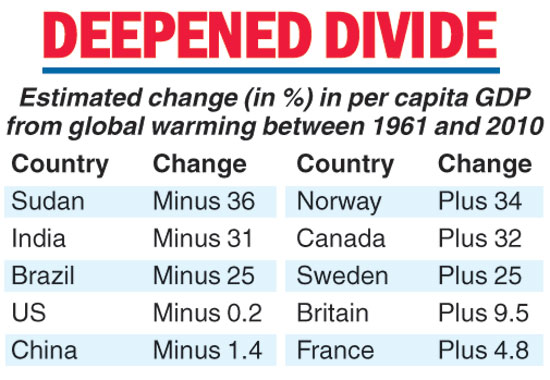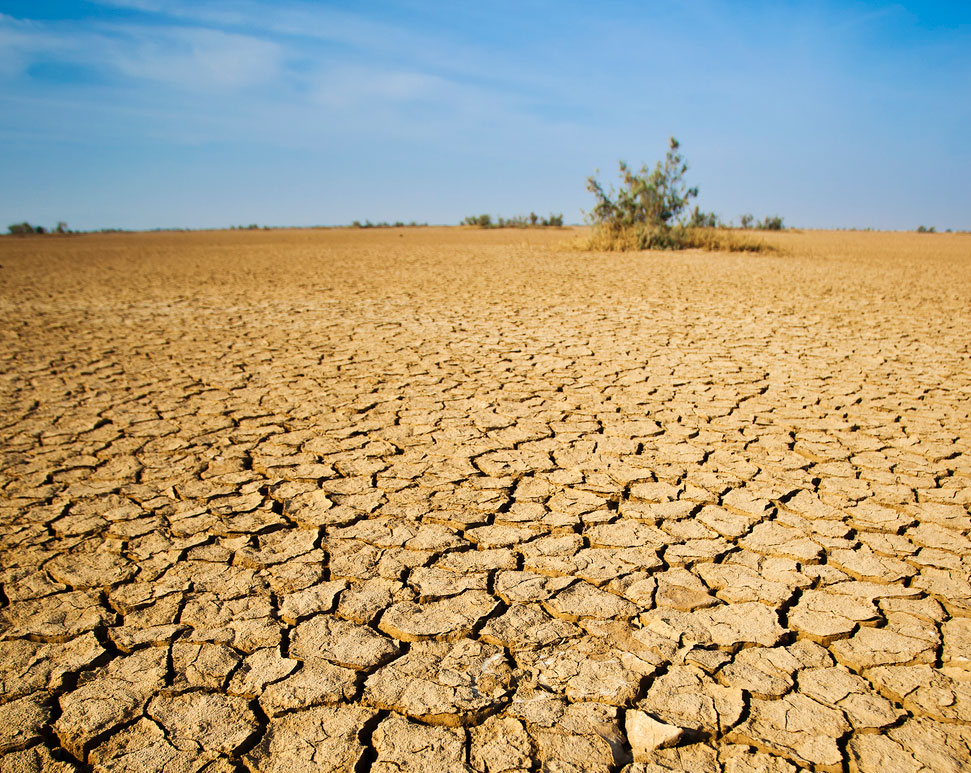Temperature changes linked to global warming have deepened global economic inequality, enriching cold countries like Canada and Norway while slowing economic growth in warmer India and Nigeria, two US researchers said on Monday.
Their study, described as the first accounting of how global warming has impacted each country economically, has found that India’s economy is about 31 per cent smaller than it would have been in the absence of global warming.
But global warming has boosted Canada’s economy by 32 per cent, Norway’s by 34 per cent, Britain’s by 9.5 per cent and Sweden’s by 25 per cent, says the study by climate researchers Noah Diffenbaugh and Marshall Burke of Stanford University.
Crop yields are good and people are productive and healthier when temperatures are neither too hot nor too cold, Diffenbaugh said in a media release. “In cold countries, a bit of warming can help, the opposite is true in places already hot.”
Diffenbaugh and Burke published their findings in the Proceedings of the National Academy of Sciences on Monday.
The researchers combined estimates of the effects of temperature fluctuations on economic growth with multiple climate models to determine what each country’s economic output would have been without the temperature changes from global warming.
While year-to-year impacts of temperature change may be small, the researchers say their impacts over decades could be significant.
“This is like a savings account, where small differences in the interest rate will generate large differences in the balance in 30 or 50 years,” Diffenbaugh said.
While global warming’s positive impacts on cold countries and negative impacts on hot countries are clear, the researchers said, its impacts on countries in the mid-latitudes such as China and the US are less clear. The analysis found a negative 0.2 per cent impact on the US economy and a negative 1.4 per cent on China’s.
“Our results show that, in addition to the direct benefits of fossil fuel use, many wealthy countries have likely been made even more wealthy by the global warming,” the researchers wrote in their paper.
“Likewise, not only have poor countries not shared in the full benefits of energy consumption, but many have already been made poorer by the energy consumption of the wealthy countries.”

The Telegraph













